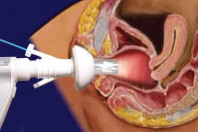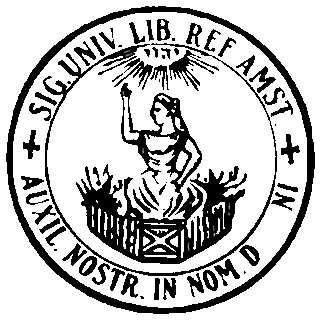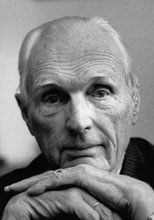Laws restricting, regulating, or banning circumcision, some dating back to ancient times, have been enacted in many countries and communities. In modern states, circumcision is generally presumed to be legal, but laws pertaining to assault or child custody have been applied in cases involving circumcision. In the case of non-therapeutic circumcision of children, proponents of laws in favor of the procedure often point to the rights of the parents or practitioners, namely the right of freedom of religion. Those against the procedure point to the boy's right of freedom from religion. In several court cases, judges have pointed to the irreversible nature of the act, the grievous harm to the boy's body, and the right to self-determination, and bodily integrity.

Doctor is an academic title that originates from the Latin word of the same spelling and meaning. The word is originally an agentive noun of the Latin verb docēre 'to teach'. It has been used as an academic title in Europe since the 13th century, when the first doctorates were awarded at the University of Bologna and the University of Paris.

Gynaecology or gynecology is the area of medicine that involves the treatment of women's diseases, especially those of the reproductive organs. It is often paired with the field of obstetrics, forming the combined area of obstetrics and gynaecology (OB-GYN).

Phimosis is a condition in which the foreskin of the penis cannot stretch to allow it to be pulled back past the glans. A balloon-like swelling under the foreskin may occur with urination. In teenagers and adults, it may result in pain during an erection, but is otherwise not painful. Those affected are at greater risk of inflammation of the glans, known as balanitis, and other complications.
In the medical profession, a general practitioner (GP) or family physician is a physician who treats acute and chronic illnesses and provides preventive care and health education to patients of all ages. GPs' duties are not confined to specific fields of medicine, and they have particular skills in treating people with multiple health issues. They are trained to treat patients to levels of complexity that vary between countries. The term "primary care physician" is more usually used in the US. In Asian countries like India, this term has been replaced mainly by Medical Officers, Registered Medical Practitioner etc.

The Vrije Universiteit Amsterdam is a public research university in Amsterdam, Netherlands, being founded in 1880. The VU Amsterdam is one of two large, publicly funded research universities in the city, the other being the University of Amsterdam (UvA). The literal translation of the Dutch name Vrije Universiteit is "Free University". "Free" refers to independence of the university from both the State and the Dutch Reformed Church. Both within and outside the university, the institution is commonly referred to as "the VU". Although founded as a private institution, the VU has received government funding on a parity basis with public universities since 1970. The university is located on a compact urban campus in the southern Buitenveldert neighbourhood of Amsterdam and adjacent to the modern Zuidas business district.

The University of Amsterdam is a public research university located in Amsterdam, Netherlands. Established in 1632 by municipal authorities, it is the fourth-oldest academic institution in the Netherlands still in operation.
Male circumcision is the surgical removal of the foreskin (prepuce) from the human penis.
Brian James Morris is a professor emeritus of molecular medical sciences at the University of Sydney, Australia.
Male circumcision reduces the risk of human immunodeficiency virus (HIV) transmission from HIV positive women to men in high risk populations.
A medical specialty is a branch of medical practice that is focused on a defined group of patients, diseases, skills, or philosophy. Examples include those branches of medicine that deal exclusively with children (paediatrics), cancer (oncology), laboratory medicine (pathology), or primary care. After completing medical school or other basic training, physicians or surgeons and other clinicians usually further their medical education in a specific specialty of medicine by completing a multiple-year residency to become a specialist.

Bernardus Cornelis Johannes Lievegoed was a Dutch medical doctor, psychiatrist and author. He is most famous for establishing a theory of organizational development. He founded the N.P.I., or Netherlands Pedagogical Institute, which works with organizations and individuals to help these realize their economic, social and cultural goals. He also founded the Vrije Hogeschool in Driebergen.

The Royal College of General Practitioners (RCGP) is the professional body for general (medical) practitioners in the United Kingdom. The RCGP represents and supports GPs on key issues including licensing, education, training, research and clinical standards. It is the largest of the medical royal colleges, with over 54,000 members. The RCGP was founded in 1952 in London, England and is a registered charity. Its motto is Cum Scientia Caritas – "Compassion [empowered] with Knowledge."

The Royal Australasian College of Physicians (RACP) is a not-for-profit professional organisation responsible for training and educating physicians and paediatricians across Australia and New Zealand.

Circumcision is a procedure that removes the foreskin from the human penis. In the most common form of the operation, the foreskin is extended with forceps, then a circumcision device may be placed, after which the foreskin is excised. Topical or locally injected anesthesia is generally used to reduce pain and physiologic stress. Circumcision is generally electively performed, most commonly done as a form of preventive healthcare, as a religious obligation, or as a cultural practice. It is also an option for cases of phimosis, other pathologies that do not resolve with other treatments, and chronic urinary tract infections (UTIs). The procedure is contraindicated in cases of certain genital structure abnormalities or poor general health.

The prevalence of circumcision is the percentage of males in a given population who have been circumcised, with the procedure most commonly being performed as a part of preventive healthcare, a religious obligation, or cultural practice.
Healthcare in England is mainly provided by the National Health Service (NHS), a public body that provides healthcare to all permanent residents in England, that is free at the point of use. The body is one of four forming the UK National Health Service as health is a devolved matter; there are differences with the provisions for healthcare elsewhere in the United Kingdom, and in England it is overseen by NHS England. Though the public system dominates healthcare provision in England, private health care and a wide variety of alternative and complementary treatments are available for those willing and able to pay.

Homeopathy is fairly common in some countries while being uncommon in others. In some countries, there are no specific legal regulations concerning the use of homeopathy, while in others, licenses or degrees in conventional medicine from accredited universities are required.

The Nederlands Tijdschrift voor Geneeskunde is the main medical journal in the Netherlands, appearing weekly. Established in 1857, it is one of the world's oldest journals. Its publication language is exclusively Dutch. The journal is published and supported by the Vereniging NTvG, which is currently composed of 209 medical scientists. The current editor-in-chief is Yolanda van der Graaf. The Journal's headquarter is situated in Amsterdam, the Netherlands. From early on, the objective was to create an overarching and all-encompassing journal for medical professionals to exchange insights, knowledge and opinion, and to guarantee consistent progress throughout the country. At present, the main sections include: News, Opinion, Research, Clinical Practice, Perspective. Nowadays, the NTvG focuses on reviews and commentaries of research articles which are often published in English. Further, it continues to produce research of medical practice mainly in the Netherlands.
Paul-Peter Tak M.D. PhD FMedSci is an immunologist and academic specialising in the fields of internal medicine, rheumatology and immunology. Tak has been the President & CEO of Candel Therapeutics since September 2020.












